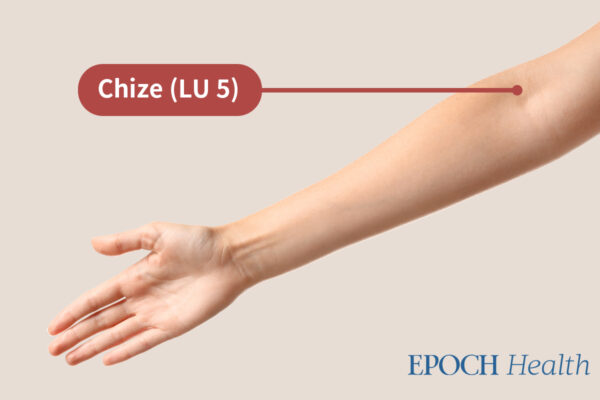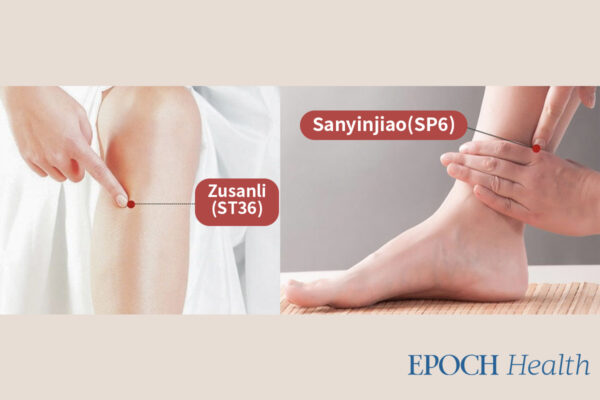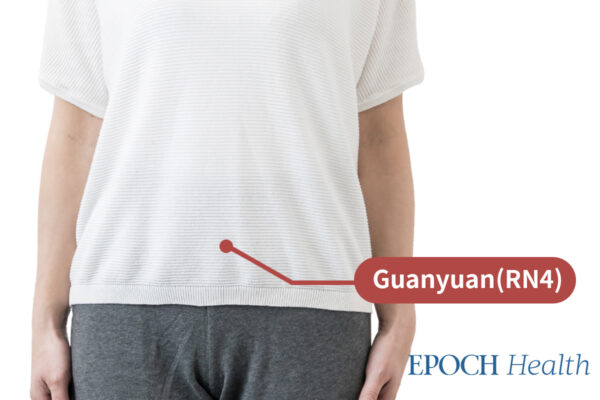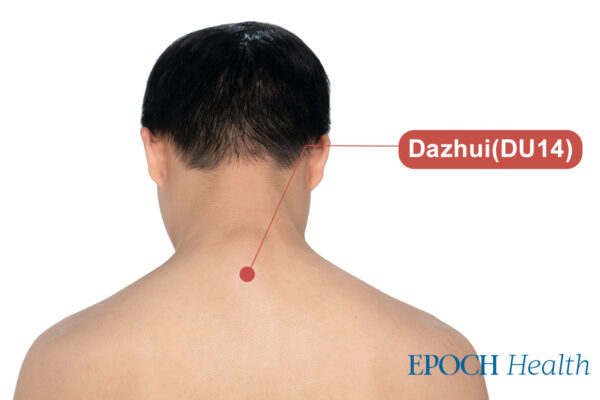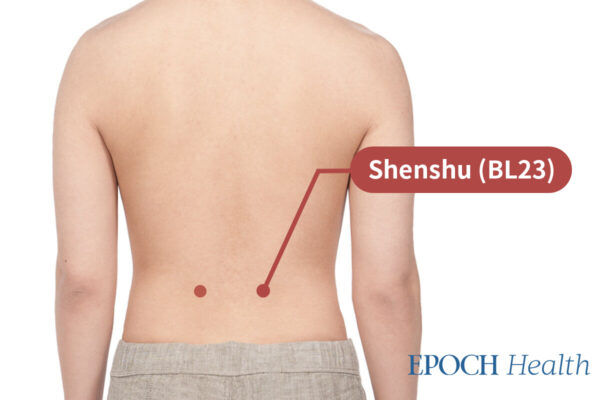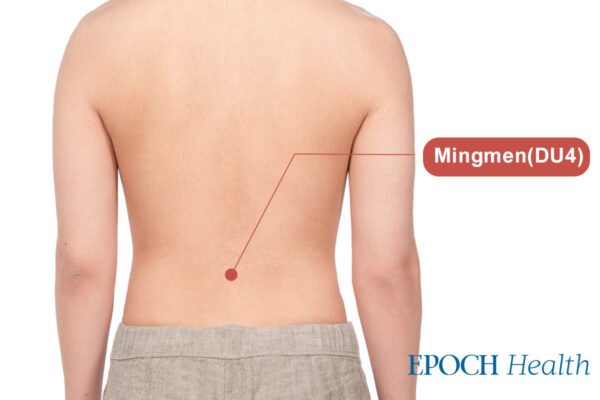

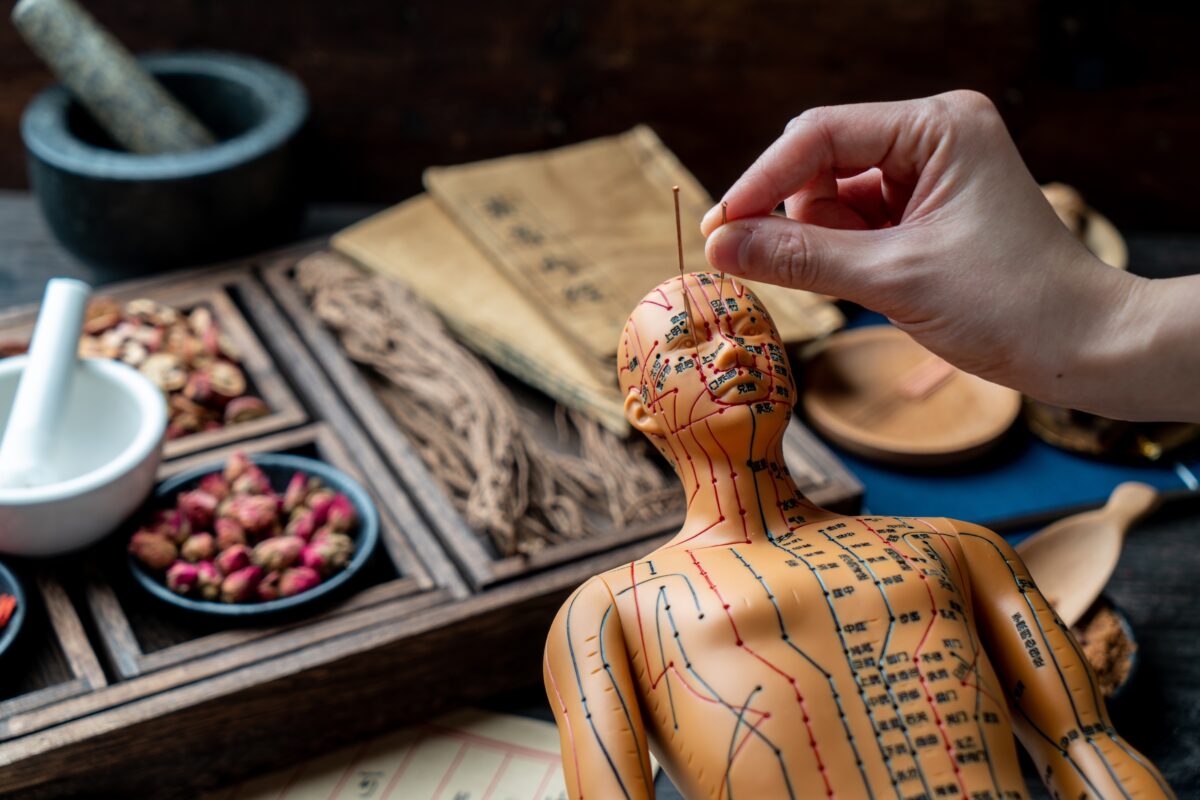
High blood pressure (hypertension) is often called the “silent killer” because it usually lurks behind the scenes and does all the damage that can increase the risk of heart, brain, kidney, and other diseases and is a leading cause of premature death. Traditional Chinese medicine (TCM) recommends tapping several acupoints to help promote blood circulation and reduce hypertension risks. The effect is even more pronounced when combined with nourishment from scented tea.
A research report published in the medical journal The Lancet in 2021 pointed out that in 2019, an estimated 1.28 billion adults aged 30 to 79 around the world suffered from hypertension. Yet, 41 percent of women and 51 percent of men don’t know they have high blood pressure.
As patients with hypertension are getting younger and younger, many young people may not think straightaway that they have high blood pressure when they have symptoms such as headaches, vomiting, and palpitations. However, these symptoms may be a precursor to high blood pressure, so measuring blood pressure levels regularly is of utmost importance.
Hypertension is a chronic disease in which blood pressure is persistently high. Blood pressure is the pressure exerted on the walls of arteries when the heart contracts to pump blood into the arteries. It consists of two values, systolic and diastolic. The former shows the pressure in the blood vessels when the heart contracts; the latter shows the pressure between the two heartbeats, which is the pressure in the blood vessels when the heart relaxes. A person is said to be suffering from hypertension when systolic blood pressure is ≥ 140 millimeters of mercury (mmHg) and diastolic blood pressure is ≥ 90 mmHg.
Hypertension may bring some fatal complications, which may be one of the reasons why high blood pressure is called a killer symptom.
Lin Yuanquan, chief supervisor of the Taiwan Taipei Chinese Medical Association (TCMA), pointed out in an online program that the complications of hypertension may affect multiple organs of the body, such as causing pathological changes (lesions) to part of the heart, leading to ventricular hypertrophy, heart failure, or coronary heart disease. When the lesions fall on the arterial zone they can cause atherosclerosis, hemangioma, arteriosclerosis, and aortic dissection. Falling on the brain can lead to cerebral embolism and intracerebral hemorrhage. In contrast, organs and parts further out like the eyes, kidney parts, and peripheral blood vessels can also be affected by complications.
According to a report published in the journal Hypertension in 2018, the risk factors for high blood pressure include:
- Genetic inheritance is evident in people with a family history of hypertension.
- Lack of exercise. A study published in 2016 in Arquivos Brasileiros de Cardiologia found that the volunteers’ blood pressure decreased significantly within a few hours after exercise.
- Influence of living habits. An unhealthy diet includes overeating potassium and sodium, drinking alcohol, and smoking. Being overweight or obese reflects poor living habits, as well. About 40 percent of high blood pressure cases may be caused by obesity, according to a study published in the Journal of the American Medical Association. Another study further pointed out that obesity caused 78 percent of men’s high blood pressure cases and 65 percent of women’s.
In an interview with The Epoch Times, Zhang Xing, a TCM physician in New Jersey, said that some patients have hypertension due to obesity, hyperlipidemia, and excessive cholesterol in the blood, causing blood vessel blockage that leads to increased blood pressure. Therefore, these patients should try to lose weight first by controlling their diet and exercising more. If a patient resorts to TCM conditioning, treatment will be based primarily on promoting blood circulation and removing blood stasis.
Zhang also pointed out that perpetual high-intensity work, under tremendous pressure, which causes undue fatigue to the body and mind, are all likely causes for a rise in blood pressure. Failure to notice such vascular blockage or the weakening of the blood vessel wall may result in a stroke, or cerebral palsy, likely starting from the rising blood pressure, but resulting in the tragedy of “dying from overwork.”
In addition to the above reasons, Hu Naiwen, a TCM physician of Shanghai Tongdetang Chinese Medicine in Taiwan, said in his online program, “Hu Naiwen’s Lecture,” other reasons for high blood pressure include:
- Emotions easily get agitated. Because the sympathetic nerves become hyperactive when one feels angry, the beating of the heart will become either faster or harder, and when the peripheral blood vessels constrict, blood will not be able to send oxygen directly to all parts of the body, and symptoms of high blood pressure will appear.
- Neck and shoulder stiffness. This may be due to blockage of blood vessels, resulting in insufficient blood supply to the brain or other organs. Ischemia in the brain leads to insufficient oxygen supply. To strengthen the blood supply, the body causes blood pressure to rise.
- Chilly weather may also play a role. When the cold wind blows, the blood vessels naturally constrict, and the blood pressure will rise.
- For patients with hypertension who are easily emotionally agitated, Hu pointed out that in addition to paying attention to adjusting and controlling their emotions every day, they can also relieve their emotions by drinking chrysanthemum tea. Put 10 or more pieces of chrysanthemums in the cup, pour in boiling water, and soak until you can smell the fragrance of the chrysanthemums. When the flowers are all opened, you can drink slowly, and you can also add licorice or wolfberry. When they have soaked long enough and you can smell the fragrance, it is ready to serve.
A study published in the journal Molecules in 2019 mentioned that chrysanthemum has anti-inflammatory, antipyretic, sedative, neuroprotective, anti-arthritic, and anti-hypertensive effects.
- For a stiff neck, shoulders, and back, Hu suggested tapping the Chize acupoint for three to five minutes every day, and at the same time gently turning the head from side to side, which can promote blood supply to the brain. You can tap the Zusanli and Sanyinjiao too, which can also enhance blood circulation, but pregnant women should avoid tapping the Sanyinjiao.
Acupoint is a unique term in Chinese culture and traditional Chinese medicine, and each is a place with many nerve endings and blood vessels. According to TCM, acupoints are distributed in the viscera and meridians on the body surface. They are the specific parts where qi and blood come together, flow, enter, and exit, and are also regarded as the energy-gathering points of the human body. TCM can treat diseases by stimulating the corresponding meridian points through massage, patting, and acupuncture.
- For an increase in blood pressure caused by cold weather, Hu reminds us to keep warm and drink more hot soup, so that the peripheral constricted blood vessels will return to their natural width and blood pressure will then drop.
According to Zhang, if a patient with hypertension is found to have cold hands and feet, has frequent urination, likes to take hot drinks, is intolerant of cold temperatures, and is frail, TCM can use acupuncture and moxibustion to treat them. The acupoints targeted, in this case, would be Zusanli and Guanyuan, Dazhui, Shenshu, and Mingmen.


